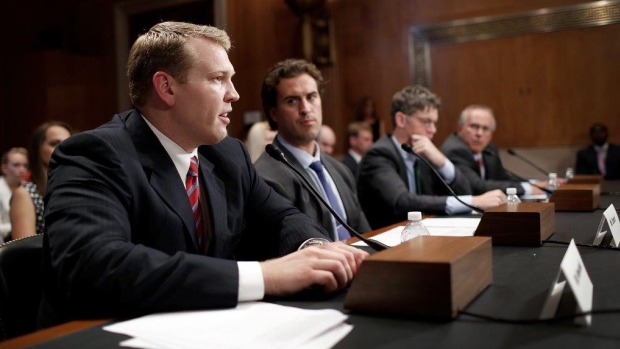Sep 24, 2015
NHL demands Boston U researchers hand over concussion documents
The National Hockey League, which is battling a high-stakes lawsuit filed by former players, is going after a group of influential medical researchers

The National Hockey League, which is battling a high-stakes lawsuit filed by former players who charge the league put profits ahead of their health, is going after a group of influential medical researchers who have drawn a link between playing in the NHL and a degenerative brain disease.
The league has demanded documents and correspondence from Chris Nowinski, a co-director of the Centre for the Study of Traumatic Encephalopathy at Boston University. Nowinski has pressured the NFL, NHL and other leagues to acknowledge that there is a connection between their sports and brain disease. The league has also issued subpoenas to Dr. Ann McKee and Dr. Robert Stern, both of whom work at Boston University.
The subpoenas, which were issued Sept. 1 and obtained by TSN, demand Nowinski, McKee and Stern hand over research related to concussions, as well as any communications with NHL officials, current and former NHL players, NHL player agents, and the family members of players. The researchers have been given an Oct. 1 deadline to comply.
NHL deputy commissioner Bill Daly said the subpoenas were sought because the researchers are fact witnesses with relevant information.
Neither Nowinski nor a Boston University spokeswoman returned phone calls or emails for comment.
The university's researchers have studied the brains of several deceased NHL players, and have reported that players including Derek Boogaard, Reggie Fleming, Rick Martin and Bob Probert each suffered from chronic traumatic encephalopathy, or CTE, a brain disease linked to Alzheimer’s.
CTE is believed to be caused by repeated head trauma and can only be diagnosed after death. Scientists say its symptoms include memory loss, mood swings, addictive behaviour and angry outbursts.
Boston University in conjunction with the U.S. government reported last week that its latest studies show the brains of 87 out of 91 former NFL players had signs of CTE.
Establishing a closer link between the NFL, NHL and CTE has been a key factor in lawsuits filed by groups of players in both leagues.
In the NHL, a group of about 80 former players is suing the league in U.S. federal court in Minnesota, charging the league knew or ought to have known that players with head injuries should have been examined by independent doctors and been fully healed before they were permitted to return to play.
The NHL has said players know the risks of hockey or could have educated themselves about the sport’s dangers.
The subpoenas come months after Nowinski was critical of NHL commissioner Gary Bettman on social media.
In May, referring to the alleged link between concussions and CTE, Bettman told reporters in Chicago that “from a medical science standpoint, there is no evidence yet that one leads to the other…”
“I know there are a lot of theories, but if you ask people who study it, they tell you there is no statistical correlation that can definitely make that conclusion,” Bettman said at the time.
Nowinski responded on his Twitter account, writing, “If ‘necessarily’ means ‘always,’ fine. If not then ‘no evidence’ is untrue. We have ‘some’ pretty good evidence.”
It’s unclear how much communication Boston University staff has had with former NHL players, player agents, and their families. Stern told TSN on Sunday that the school does not disclose details of its communications with possible brain donors or their families.
Also this week, the NHL asked a judge in its concussion lawsuit to dismiss the claims brought by former players Dan Fritsche, German Titov and Bob Bourne. The players have refused to fill out fact sheets detailing their medical and employment histories as required by the court.
“The NHL has sent multiple letters to plaintiffs’ counsel addressing the missing fact sheets in an effort to resolve this problem,” a lawyer for the NHL wrote in a court motion. “In response to these letters, plaintiffs’ counsel advised during a Sept. 18, 2015, meet-and-confer call that the three plaintiffs have ceased communicating regarding their fact sheet obligations and are therefore not expected to provide fact sheets.”
“The complete failure of these plaintiffs to respond to court-ordered discovery requests, or even attempt to explain why they have not responded to the NHL’s repeated requests, warrants dismissal of their claims without prejudice.”

